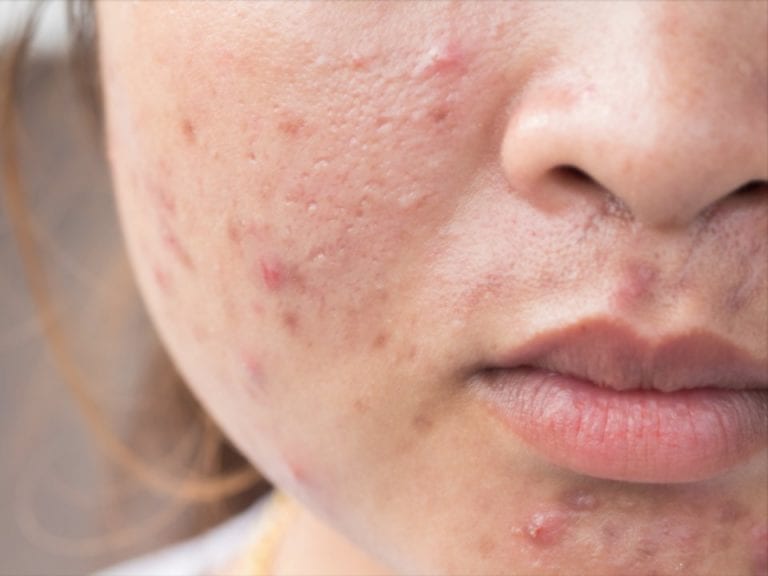How far are you willing to go down the rabbit hole of “the personal is the political”? Slate’s Rebecca Schuman might be at the very bottom, judging by yesterday’s article, “The 10-step Korean skin care routine is a radical act of feminist self-care.” It hasn’t really gone viral, exactly, but it’s picking up steam, and it’s stirring up some anger in the K-beauty community.
In the article, Schuman argues that this very intensive skin-care routine is a feminist act, and that feminist academics agree:
“What I didn’t realize until recently, however, is that K-beauty is also popular with self-identified feminist academics and scholars, several of whom told me that they view the elaborate routine not as vanity but rather as an act of radical feminist self-care.*”
That asterisk is important, because it leads to a retraction Slate had to issue regarding inaccuracies about the article’s content. Fashionista handily breaks it down: Schuman claimed that K-beauty bloggers Tracy (from fanserviced-b, the title of which was misspelled in the original article, as Tracy points out) and Cat Cactus (from Snow White and the Asian Pear) were both academics and feminists. Schuman’s article originally read:
“What I didn’t realize until recently, however, is that K-beauty is also popular with self-identified feminist academics and scholars, including the prominent K-beauty blogger Tracy (fanservice-b), who is a History Ph.D., and Cat Cactus (Snow White and the Asian Pear). Several of these women told me that they view the elaborate routine not as vanity but rather as an act of radical feminist self-care.”

Source: thisisinsider.com
But both Tracy and Cat Cactus have kept politics out of their blogs, on purpose, and Cat Cactus isn’t an academic or a scholar. It appears that Schuman never reached out to them for comment, and just slapped their names into her hypothesis to add credibility to her argument. When Fashionista did contact them, Cat had this to say:
“To have radicalized statements that I have neither said nor given permission to be said on my behalf, and to have my body of work appropriated for someone’s political agenda, all without my consent, is deeply offensive to me. As an educated, modern, empowered woman, I have every ability and right to speak for myself, and that was not respected today. I fail to see how this appropriation and lack of consent is an act of feminism.”
On top of that, Jude Chao, another K-beauty blogger whose blog was quoted in the Slate article but who was also apparently not contacted for comment by Schuman, is peeved about her inclusion in the article as well. She had blogged about how her skincare routine helped her to recover from depression, but she told Fashionista, “What bothers me about the way my work was used in the Slate piece is that it undermines my efforts to make [my blog] Fifty Shades of Snail as inclusive and accessible as possible. I’ve made a conscious effort… to keep my personal beliefs and political leanings out of my writing.”
There are a few problems here, like confirmation bias: Schuman gathered her evidence to fit a pre-formed conclusion she had made based on her own experiences with women academics. It wasn’t empirical or academic of her to not bother checking in with writers who she was going to imply shared her political associations. This isn’t very surprising to me, based on my own experiences distancing myself from the “feminist” label – when I said I wanted to opt out, the response I got from various feminists was that they were going to consider me a feminist anyway as long as I believe in the (nebulously broad) goal of gender equality.
That doesn’t reflect #allfeminists, of course, and I have no ill will toward feminism, because who cares? Call yourself what you want to. But it does touch on a tendency, in trend pieces, to politicize acts that are not necessarily political – wearing acrylic nails, baking, eating food (with the caveat, of course, that eating disorders and sexism are cozy friends). It’s fine to explore how these activities are politically meaningful to the individual, how they fit into an XYZ-ist worldview, how whatever group’s interaction with the activity has been historically significant. But when that exploration becomes prescription, such as a headline declaring that “The 10-step Korean skin care routine is a radical act of feminist self-care” (emphasis mine) combined with a cavalier attitude toward fact-finding and -checking, it lacks intellectual integrity.

Source: thisisinsider.com
More than that, though, can we pursue the possibility of just being? Can people do their skin-care routine because they like it, or because they like how it makes them look, not because they’re making a statement? Can people wear acrylic nails because they’re pretty, not because they take down the patriarchy? Tracy puts it well: “Sometimes a toner is a fucking toner.”
I propose that just being is the admittedly nebulous but nonetheless real goal of the struggle for gender equality. Right? We all want to be able to be both the things we have and have not chosen to be. We want to be who we are without catching flack or suffering violence for it. I’m not personally sure that micro-asserting my gender politics into every outfit I wear and every visit to the doctor, every meal, every workout, every follicle of hair, and every shower helps me to just be, as a female-bodied queer trans person. I’m pretty sure it complicates things tremendously and forces me to speak up or feel aggrieved when there’s no need to. If it helps you, more power to you. Just don’t convince yourself that politicizing your skin care routine is what’s good or true for everyone.
[Slate] [Fashionista]
Original by: Rebecca Brink
